Welcome to DU!
The truly grassroots left-of-center political community where regular people, not algorithms, drive the discussions and set the standards.
Join the community:
Create a free account
Support DU (and get rid of ads!):
Become a Star Member
Latest Breaking News
General Discussion
The DU Lounge
All Forums
Issue Forums
Culture Forums
Alliance Forums
Region Forums
Support Forums
Help & Search
Celerity
Celerity's Journal
Celerity's Journal
June 25, 2020
https://time.com/5858705/ritchie-torres-mondaire-jones-gay-black-congress/
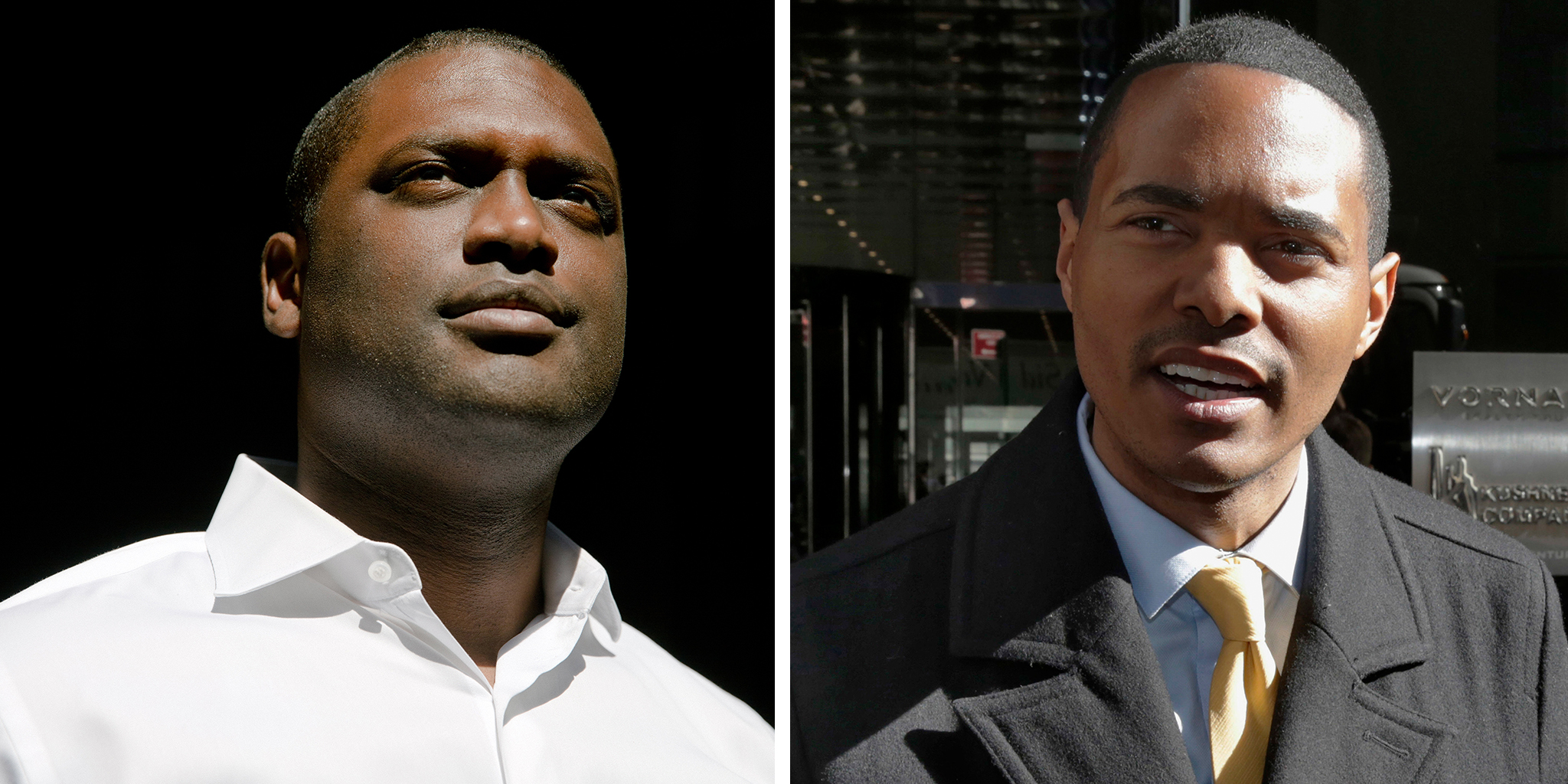
(L-R) Mondaire Jones and Ritchie Torres Al J. Thompson—The New York Times/Redux; Richard Drew—AP
Two Democratic candidates appear poised to become the first openly gay Black members of Congress. The final results of Tuesday’s Democratic primary in New York aren’t all in yet, as a large number of New Yorkers voted via absentee ballot due to the COVID-19 pandemic. These ballots which won’t be tabulated until June 30, per the Associated Press. However, early results in two races show that New York City Councilman Ritchie Torres and progressive lawyer Mondaire Jones are each in a strong position to win their primaries. Both candidates are running in districts viewed as Democratic strongholds; if they win come November, Torres and Jones would be the first openly gay Black members of Congress. Torres would also be the first openly gay Afro-Latino congressman.
“Growing up poor, Black and gay, I would never have imagined that someone like me could run for Congress, let alone be a leading contender for the Democratic nomination,” Jones tells TIME. “I’m really grateful for this opportunity to inspire people and to change history.”
Ritchie Torres
Torres, 32, is running to represent New York’s 15th Congressional District in the Bronx. He’s has been a breakout star in city politics; he was elected to New York City Council back in 2013 at 25, becoming the youngest member of the council and the first openly gay elected official in the Bronx. The Democratic primary for the 15th District has been crowded: At least 12 candidates ran to replace retiring Democratic Rep. Jose Serrano, including controversial New York City Council member Rubén Díaz Sr., who has a long history of homophobic comments, has praised President Donald Trump and opposes abortion. As the Wall Street Journal reported on June 17, national Democrats had worried that the crowded field would split the progressive vote and allow Díaz to prevail, given his high name recognition in the borough. A June 3 poll from liberal think tank Data for Progress found that Diaz led the crowded field with only 22% of the vote, followed by Torres at 20%.
snip
Mondaire Jones
Progressive candidate Mondaire Jones appears poised to win New York’s 17th Congressional District in the lower Hudson Valley. Jones was among a pool of candidates running to replace long-time Democratic Rep. Nita Lowey, who is stepping down after serving in Congress for more than three decades. The 33-year-old worked in the Department of Justice during the Obama administration and recently served as an attorney in the Westchester County Law Department. He has the backing of the progressive wing of the party, including Sen. Bernie Sanders, Sen. Elizabeth Warren and Rep. Alexandria Ocasio-Cortez. (Ocasio-Cortez resoundingly won her own primary in New York’s 14th district on Tuesday night.) The race — described by the Times as a “seven-way- free-for-all” — also included Adam Schleifer, a former California federal prosecutor, Evelyn Farkas, a former deputy assistant secretary of defense under the Obama administration and David Carlucci, a New York state senator. Schleifer, the son of billionaire Leonard Schleifer, had spent more than $4 million on the race, around $1 million more than the other six candidates combined, according to the Times. As of 2 p.m. on Wednesday, Jones had around 44.8% of the vote with Schleifer following with 20.6%, per the Times.On Tuesday night, Wasserman of the Cook Political Report called the race for Jones.
snip




This Has Been a Long Time Coming. Two New York Candidates Now Poised to Become First Openly Gay
Black, Afro-Latino Men in Congresshttps://time.com/5858705/ritchie-torres-mondaire-jones-gay-black-congress/

(L-R) Mondaire Jones and Ritchie Torres Al J. Thompson—The New York Times/Redux; Richard Drew—AP
Two Democratic candidates appear poised to become the first openly gay Black members of Congress. The final results of Tuesday’s Democratic primary in New York aren’t all in yet, as a large number of New Yorkers voted via absentee ballot due to the COVID-19 pandemic. These ballots which won’t be tabulated until June 30, per the Associated Press. However, early results in two races show that New York City Councilman Ritchie Torres and progressive lawyer Mondaire Jones are each in a strong position to win their primaries. Both candidates are running in districts viewed as Democratic strongholds; if they win come November, Torres and Jones would be the first openly gay Black members of Congress. Torres would also be the first openly gay Afro-Latino congressman.
“Growing up poor, Black and gay, I would never have imagined that someone like me could run for Congress, let alone be a leading contender for the Democratic nomination,” Jones tells TIME. “I’m really grateful for this opportunity to inspire people and to change history.”
Ritchie Torres
Torres, 32, is running to represent New York’s 15th Congressional District in the Bronx. He’s has been a breakout star in city politics; he was elected to New York City Council back in 2013 at 25, becoming the youngest member of the council and the first openly gay elected official in the Bronx. The Democratic primary for the 15th District has been crowded: At least 12 candidates ran to replace retiring Democratic Rep. Jose Serrano, including controversial New York City Council member Rubén Díaz Sr., who has a long history of homophobic comments, has praised President Donald Trump and opposes abortion. As the Wall Street Journal reported on June 17, national Democrats had worried that the crowded field would split the progressive vote and allow Díaz to prevail, given his high name recognition in the borough. A June 3 poll from liberal think tank Data for Progress found that Diaz led the crowded field with only 22% of the vote, followed by Torres at 20%.
snip
Mondaire Jones
Progressive candidate Mondaire Jones appears poised to win New York’s 17th Congressional District in the lower Hudson Valley. Jones was among a pool of candidates running to replace long-time Democratic Rep. Nita Lowey, who is stepping down after serving in Congress for more than three decades. The 33-year-old worked in the Department of Justice during the Obama administration and recently served as an attorney in the Westchester County Law Department. He has the backing of the progressive wing of the party, including Sen. Bernie Sanders, Sen. Elizabeth Warren and Rep. Alexandria Ocasio-Cortez. (Ocasio-Cortez resoundingly won her own primary in New York’s 14th district on Tuesday night.) The race — described by the Times as a “seven-way- free-for-all” — also included Adam Schleifer, a former California federal prosecutor, Evelyn Farkas, a former deputy assistant secretary of defense under the Obama administration and David Carlucci, a New York state senator. Schleifer, the son of billionaire Leonard Schleifer, had spent more than $4 million on the race, around $1 million more than the other six candidates combined, according to the Times. As of 2 p.m. on Wednesday, Jones had around 44.8% of the vote with Schleifer following with 20.6%, per the Times.On Tuesday night, Wasserman of the Cook Political Report called the race for Jones.
snip
June 24, 2020
Label:
Def Jam Recordings ?– XPR 1660
Format:
Vinyl, 12", Promo, Yellow
Country:
UK
Released:
1991
Genre:
Hip Hop
Style:
Conscious





Public Enemy - Can't Truss It
Label:
Def Jam Recordings ?– XPR 1660
Format:
Vinyl, 12", Promo, Yellow
Country:
UK
Released:
1991
Genre:
Hip Hop
Style:
Conscious





June 24, 2020
Trump is doing more to protect statues than American citizens.
https://twitter.com/ProjectLincoln/status/1275429756809461762
June 24, 2020
https://www.nytimes.com/2020/06/23/opinion/bernie-sanders-protesters-democrats.html

Three months ago, Bernie Sanders lost his chance at the Democratic nomination, after a brief moment in which his socialist revolution seemed poised to raze the bastions of neoliberal power. But the developments of the last month, the George Floyd protests and their cultural repercussions, may prove the more significant defeat for the Sanders cause. In the winter he merely lost a presidential nomination; in the summer he may be losing the battle for the future of the left. Throughout his career, Sanders has stood for the proposition that left-wing politics lost its way after the 1970s by letting what should be its central purpose — the class struggle, the rectification of economic inequality, the war against the “millionaires and billionaires” — be obscured by cultural battles and displaced by a pro-business, pro-Wall Street economic program. This shift has made left-of-center political parties (in Europe as well as the United States) steadily more upper middle class and conservatism steadily more blue collar, but the promise of Sandersism was that the transformation need not be permanent: A left that recovered the language of class struggle, that disentangled liberal politics from faculty-lounge elitism and neoliberal economics, could rally a silent majority against plutocracy and win.
The 2016 Sanders primary campaign, which won white, working-class voters who had been drifting from the Democrats, seemed to vindicate this argument. The 2020 Sanders campaign, however, made it look more dubious, by illustrating the core challenge facing a socialist revolution: Its most passionate supporters — highly educated, economically disappointed urbanites — aren’t natural coalition partners for a Rust Belt populism, and the more they tugged Sanders toward the cultural left, the easier it was for Joe Biden to win blue-collar votes, leaving Sanders leading an ideological faction rather than a broader working-class insurgency. Now, under these strange coronavirus conditions, we’re watching a different sort of insurgency challenge or change liberalism, one founded on an intersectional vision of left-wing politics that never came naturally to Sanders. Rather than Medicare for All and taxing plutocrats, the rallying cry is racial justice and defunding the police. Instead of finding its nemeses in corporate suites, the intersectional revolution finds them on antique pedestals and atop the cultural establishment.
And so far, as my colleague Sydney Ember noted last week, this revolution has been more unifying than Sanders’s version — uniting the Democratic establishment that once closed ranks against him, earning support from just about every major corporate and cultural institution, sending anti-racism titles skyrocketing up the best-seller list, even bringing Mitt Romney into the streets as a marcher and inducing Donald Trump to make grudging noises about police reform. Ember quotes the law professor Kimberlé Crenshaw, the theorist of intersectionality, marveling at the change: “You basically have a moment where every corporation worth its salt is saying something about structural racism and anti-blackness, and that stuff is even outdistancing what candidates in the Democratic Party were actually saying.” All this, from one perspective, vindicates critics who said Sanders’s vision of revolution was too class-bound and race-blind all along. But the longer arc of the current revolutionary moment may actually end up vindicating the socialist critique of post-1970s liberalism — that it’s obsessed with cultural power at the expense of economic transformation, and that it puts the language of radicalism in the service of elitism.
The demand for police reform at the heart of the current protests doesn’t fit this caricature. But much of the action around it, the anti-racist reckoning unfolding in colleges, media organizations, corporations and public statuary, may seem more unifying than the Sanders revolution precisely because it isn’t as threatening to power. The fact that corporations are “outdistancing” even politicians, as Crenshaw puts it, in paying fealty to anti-racism is perhaps the tell. It’s not that corporate America is suddenly deeply committed to racial equality; even for woke capital, the capitalism comes first. Rather, it’s that anti-racism as a cultural curriculum, a rhetoric of re-education, is relatively easy to fold into the mechanisms of managerialism, under the tutelage of the human resources department. The idea that you need to retrain your employees so that they can work together without microaggressing isn’t Marxism, cultural or otherwise; it’s just a novel form of Fordism, with white-fragility gurus in place of efficiency experts.
snip
NYT: The Second Defeat of Bernie Sanders
In a revolutionary summer, he may be losing the battle for the future of the left.https://www.nytimes.com/2020/06/23/opinion/bernie-sanders-protesters-democrats.html

Three months ago, Bernie Sanders lost his chance at the Democratic nomination, after a brief moment in which his socialist revolution seemed poised to raze the bastions of neoliberal power. But the developments of the last month, the George Floyd protests and their cultural repercussions, may prove the more significant defeat for the Sanders cause. In the winter he merely lost a presidential nomination; in the summer he may be losing the battle for the future of the left. Throughout his career, Sanders has stood for the proposition that left-wing politics lost its way after the 1970s by letting what should be its central purpose — the class struggle, the rectification of economic inequality, the war against the “millionaires and billionaires” — be obscured by cultural battles and displaced by a pro-business, pro-Wall Street economic program. This shift has made left-of-center political parties (in Europe as well as the United States) steadily more upper middle class and conservatism steadily more blue collar, but the promise of Sandersism was that the transformation need not be permanent: A left that recovered the language of class struggle, that disentangled liberal politics from faculty-lounge elitism and neoliberal economics, could rally a silent majority against plutocracy and win.
The 2016 Sanders primary campaign, which won white, working-class voters who had been drifting from the Democrats, seemed to vindicate this argument. The 2020 Sanders campaign, however, made it look more dubious, by illustrating the core challenge facing a socialist revolution: Its most passionate supporters — highly educated, economically disappointed urbanites — aren’t natural coalition partners for a Rust Belt populism, and the more they tugged Sanders toward the cultural left, the easier it was for Joe Biden to win blue-collar votes, leaving Sanders leading an ideological faction rather than a broader working-class insurgency. Now, under these strange coronavirus conditions, we’re watching a different sort of insurgency challenge or change liberalism, one founded on an intersectional vision of left-wing politics that never came naturally to Sanders. Rather than Medicare for All and taxing plutocrats, the rallying cry is racial justice and defunding the police. Instead of finding its nemeses in corporate suites, the intersectional revolution finds them on antique pedestals and atop the cultural establishment.
And so far, as my colleague Sydney Ember noted last week, this revolution has been more unifying than Sanders’s version — uniting the Democratic establishment that once closed ranks against him, earning support from just about every major corporate and cultural institution, sending anti-racism titles skyrocketing up the best-seller list, even bringing Mitt Romney into the streets as a marcher and inducing Donald Trump to make grudging noises about police reform. Ember quotes the law professor Kimberlé Crenshaw, the theorist of intersectionality, marveling at the change: “You basically have a moment where every corporation worth its salt is saying something about structural racism and anti-blackness, and that stuff is even outdistancing what candidates in the Democratic Party were actually saying.” All this, from one perspective, vindicates critics who said Sanders’s vision of revolution was too class-bound and race-blind all along. But the longer arc of the current revolutionary moment may actually end up vindicating the socialist critique of post-1970s liberalism — that it’s obsessed with cultural power at the expense of economic transformation, and that it puts the language of radicalism in the service of elitism.
The demand for police reform at the heart of the current protests doesn’t fit this caricature. But much of the action around it, the anti-racist reckoning unfolding in colleges, media organizations, corporations and public statuary, may seem more unifying than the Sanders revolution precisely because it isn’t as threatening to power. The fact that corporations are “outdistancing” even politicians, as Crenshaw puts it, in paying fealty to anti-racism is perhaps the tell. It’s not that corporate America is suddenly deeply committed to racial equality; even for woke capital, the capitalism comes first. Rather, it’s that anti-racism as a cultural curriculum, a rhetoric of re-education, is relatively easy to fold into the mechanisms of managerialism, under the tutelage of the human resources department. The idea that you need to retrain your employees so that they can work together without microaggressing isn’t Marxism, cultural or otherwise; it’s just a novel form of Fordism, with white-fragility gurus in place of efficiency experts.
snip
June 24, 2020
https://www.theatlantic.com/international/archive/2020/06/europe-borders-open-coronavirus-cosmopolitan/613267/

A couple I know who’d been living in Beijing—she’s American and he’s Australian—are marooned in Budapest, waiting for China to reopen its borders. A friend wrote me from Boston. She has both an American and an Irish passport, and is unsure whether she can enter France to see her partner, to whom she’s not married. Another friend, who is American, married her French partner this month before he returned to France because they didn’t know when he would be allowed back into America, or she into France. Cosmopolitanism—or travel, period—has become deeply confusing in the COVID-19 era. When the pandemic hit, borders began closing around the world. Now they are reopening gradually, but also arbitrarily, in ways that seem determined less by infection rates and more by politics, economics, and, for some countries, a need for tourists. To those of us who came of age after the end of the Cold War, these sudden and in many cases incoherent closures are not just irritating; they are crushing—a rapid and dramatic stricture of everything many of us had been lucky enough to take for granted: open borders and freedom of movement.
For decades, Europe has been the emotional center of this belief in a borderless world. European Union nationals can live, work, and study in any of the bloc’s 27 member states, while visitors can travel throughout the 26 countries in the Schengen Area without internal border controls. In much of this region, you use the same currency and can drive across a national frontier without knowing it; roaming on your cellphone is free. Europeans can (and do) live in one country and commute into another. Some towns lie along a border, and residents move unencumbered from one country into the other. All of this is relatively new—a product of the postwar world, when the core countries of Europe forged closer alliances to prevent the wars that had for so long marked and marred the Continent’s history. The loosening of borders spread even farther after the fall of the Berlin Wall, and then again more than a decade later, when many countries in the former Eastern Bloc became part of the European Union. But the coronavirus outbreak has emboldened defenders of the nation-state, in Europe and beyond. This doesn’t affect just people who live and work across borders, or people like me, who feel at home in many countries. From now on, it will likely be harder to start a business or fall in love beyond national borders, and even harder to be a refugee or seek asylum.
Though these latest restrictions have come into force suddenly, during a health emergency, they have been a long time in the making. The coronavirus brings the latest in a series of attacks on the notion of open borders, especially in Europe. First came the refugee crisis in 2015, which gave oxygen to politicians across the Continent calling for curbs on migration. Then came Brexit and the election of Trump, both of which marked the symbolic turning-inward of countries that had previously been open to migrants, to cosmopolitanism. The virus has only furthered the feeling of retrenchment. I recently spoke with Mira Frischhut, a 27-year-old Austrian who lives in France. When Europe closed its borders to outsiders in March, in an effort to slow the outbreak, she was stuck in Colombia on vacation. It took numerous calls to the French and Austrian embassies to sort out which country would take her back; she eventually managed to get to France. “It was really this moment where I wasn’t European,” she told me. “It was two countries that said they weren’t responsible for me. It wasn’t two countries within the EU, but two countries, period.” This was something new. “I grew up as a European,” Frischhut said. “I moved to France at 18. I never experienced too many borders in Europe, so this was clearly a shock.”
Frischhut spent the next few weeks in France but recently traveled to Innsbruck, Austria, where she’s from, after France finally allowed residents to travel more than 100 kilometers, or about 60 miles, from home and opened some of its borders. Being back in Innsbruck, Frischhut noticed a host of other travel issues: The city is close to the German and Italian borders, but the rules vary. For a while, Austria permitted Germans to drive through Austria en route to Italy, but they had not been allowed to stop in the country. (Austria has since opened its borders to residents of all EU countries except the U.K., Sweden, and Portugal.) Those myriad, frequently confusing restrictions were by no means unique. My American friend with the Irish passport tried to find out whether she could enter France this month. The answer? Maybe. And what about the friend in the transatlantic relationship who married her French partner so they could be sure to see each other? Their travels, too, are in doubt: The United States has closed its borders to foreign nationals who have been to Europe or China in the previous 14 days. Spain opened its borders with France and Portugal this week. On June 15, Germany, Italy, and France began allowing in EU nationals without requiring them to quarantine for two weeks upon arrival, though France still requires arrivals from Britain to self-isolate for two weeks. Britain requires the majority of travelers to quarantine upon arrival as well.
snip
The Death of Cosmopolitanism
The coronavirus outbreak has emboldened defenders of the nation-state, in Europe and beyond.https://www.theatlantic.com/international/archive/2020/06/europe-borders-open-coronavirus-cosmopolitan/613267/

A couple I know who’d been living in Beijing—she’s American and he’s Australian—are marooned in Budapest, waiting for China to reopen its borders. A friend wrote me from Boston. She has both an American and an Irish passport, and is unsure whether she can enter France to see her partner, to whom she’s not married. Another friend, who is American, married her French partner this month before he returned to France because they didn’t know when he would be allowed back into America, or she into France. Cosmopolitanism—or travel, period—has become deeply confusing in the COVID-19 era. When the pandemic hit, borders began closing around the world. Now they are reopening gradually, but also arbitrarily, in ways that seem determined less by infection rates and more by politics, economics, and, for some countries, a need for tourists. To those of us who came of age after the end of the Cold War, these sudden and in many cases incoherent closures are not just irritating; they are crushing—a rapid and dramatic stricture of everything many of us had been lucky enough to take for granted: open borders and freedom of movement.
For decades, Europe has been the emotional center of this belief in a borderless world. European Union nationals can live, work, and study in any of the bloc’s 27 member states, while visitors can travel throughout the 26 countries in the Schengen Area without internal border controls. In much of this region, you use the same currency and can drive across a national frontier without knowing it; roaming on your cellphone is free. Europeans can (and do) live in one country and commute into another. Some towns lie along a border, and residents move unencumbered from one country into the other. All of this is relatively new—a product of the postwar world, when the core countries of Europe forged closer alliances to prevent the wars that had for so long marked and marred the Continent’s history. The loosening of borders spread even farther after the fall of the Berlin Wall, and then again more than a decade later, when many countries in the former Eastern Bloc became part of the European Union. But the coronavirus outbreak has emboldened defenders of the nation-state, in Europe and beyond. This doesn’t affect just people who live and work across borders, or people like me, who feel at home in many countries. From now on, it will likely be harder to start a business or fall in love beyond national borders, and even harder to be a refugee or seek asylum.
Though these latest restrictions have come into force suddenly, during a health emergency, they have been a long time in the making. The coronavirus brings the latest in a series of attacks on the notion of open borders, especially in Europe. First came the refugee crisis in 2015, which gave oxygen to politicians across the Continent calling for curbs on migration. Then came Brexit and the election of Trump, both of which marked the symbolic turning-inward of countries that had previously been open to migrants, to cosmopolitanism. The virus has only furthered the feeling of retrenchment. I recently spoke with Mira Frischhut, a 27-year-old Austrian who lives in France. When Europe closed its borders to outsiders in March, in an effort to slow the outbreak, she was stuck in Colombia on vacation. It took numerous calls to the French and Austrian embassies to sort out which country would take her back; she eventually managed to get to France. “It was really this moment where I wasn’t European,” she told me. “It was two countries that said they weren’t responsible for me. It wasn’t two countries within the EU, but two countries, period.” This was something new. “I grew up as a European,” Frischhut said. “I moved to France at 18. I never experienced too many borders in Europe, so this was clearly a shock.”
Frischhut spent the next few weeks in France but recently traveled to Innsbruck, Austria, where she’s from, after France finally allowed residents to travel more than 100 kilometers, or about 60 miles, from home and opened some of its borders. Being back in Innsbruck, Frischhut noticed a host of other travel issues: The city is close to the German and Italian borders, but the rules vary. For a while, Austria permitted Germans to drive through Austria en route to Italy, but they had not been allowed to stop in the country. (Austria has since opened its borders to residents of all EU countries except the U.K., Sweden, and Portugal.) Those myriad, frequently confusing restrictions were by no means unique. My American friend with the Irish passport tried to find out whether she could enter France this month. The answer? Maybe. And what about the friend in the transatlantic relationship who married her French partner so they could be sure to see each other? Their travels, too, are in doubt: The United States has closed its borders to foreign nationals who have been to Europe or China in the previous 14 days. Spain opened its borders with France and Portugal this week. On June 15, Germany, Italy, and France began allowing in EU nationals without requiring them to quarantine for two weeks upon arrival, though France still requires arrivals from Britain to self-isolate for two weeks. Britain requires the majority of travelers to quarantine upon arrival as well.
snip
June 24, 2020
https://www.theatlantic.com/ideas/archive/2020/06/second-great-depression/613360/

The American economy is reopening. In Alabama, gyms are back in business. In Georgia, restaurants are seating customers again. In Texas, the bars are packed. And in Vermont, the stay-at-home order has been lifted. People are still frightened. Americans are still dying. But the next, queasy phase of the coronavirus pandemic is upon us. And it seems likely that the financial nadir, the point at which the economy stops collapsing and begins growing again, has passed. What will the recovery look like? At this fraught moment, no one knows enough about consumer sentiment and government ordinances and business failures and stimulus packages and the spread of the disease to make solid predictions about the future. The Trump administration and some bullish financial forecasters are arguing that we will end up with a strong, V-shaped rebound, with economic activity surging right back to where it was in no time. Others are betting on a longer, slower, U-shaped turnaround, with the pain extending for a year or three. Still others are sketching out a kind of flaccid check mark, its long tail sagging torpid into the future.
Excitement about reopening aside, that third and most miserable course is the one we appear to be on. The country will rebound, as things reopen. The bounce will seem remarkable, given how big the drop was: Retail sales rose 18 percent in May, and the economy added 2.5 million jobs. But absent dramatic policy action, a pandemic depression is possible: the Congressional Budget Office anticipates that the American economy will generate $8 trillion less in economic activity over the next decade than it projected just a few months ago, and that a full recovery might not take hold until the 2030s. At least four major factors are terrifying economists and weighing on the recovery: the household fiscal cliff, the great business die-off, the state and local budget shortfall, and the lingering health crisis. Three months ago, the pandemic and ensuing shelter-in-place orders caused mass job loss unlike anything in recent American history. A virtual blizzard settled on top of the country and froze everyone in place. Nearly 40 percent of low-wage workers lost their jobs in March. More than 40 million people lost their jobs in March, April, or May.
Faced with this historic catastrophe, the United States marshaled a historic response: Republicans in the White House and Congress, generally hostile to the notion of economic stimulus for low-income households, came together with Democrats to achieve a $2 trillion rescue package, including a $1,200 onetime payment for most adults and $500 for many children, a radical expansion of the unemployment-insurance system to include gig workers, and a $600-a-week bump to unemployment-insurance payouts. It also created a sweeping small-business rescue plan, covering payroll for companies that kept their employees on the books. The good: This money kept families afloat—at least for the first, intense months of shelter-in-place. New estimates suggest that the congressional rescue plan prevented poverty rates from rising, with many jobless workers seeing their incomes increase during lockdown due to the expanded unemployment-insurance payouts. The bad: It left out roughly 15 million people in immigrant families, many of whom were working essential jobs stocking grocery shelves, delivering takeout, and drawing blood in hospitals. And the ugly: The big helicopter drop was a onetime thing, and the unemployment-insurance expansion was time-limited. Congress designed Uncle Sam’s help to dry up this summer, with the unemployment rate still in the double digits. Democrats and Republicans are negotiating another stimulus bill, but concerns about surging budget deficits are complicating the talks.
That means households are headed for a cliff. But not everyone will be affected by it equally. Rich workers, the ones with do-anywhere office jobs, have remained relatively untouched by job and earnings losses thus far. Wealthy families have seen their stock portfolios rebound to close to where they were in the winter. But poor workers—disproportionately black and Latino workers, as well as younger workers—have borne the heaviest employment and earnings losses. They entered this recession with no wealth cushion, many saddled with heavy rents and heavy debts. Income and job losses for them translate into a loss of demand economy-wide, absent federal intervention. If and when that federal intervention dries up, millions of families just keeping their head above water will sink, as lost jobs and canceled hours force them to stop paying their rent and go into arrears on their debt payments. Hunger, homelessness, forgotten plans to attend community college, babies growing up in stressed households: These are the stakes. The CBO forecasts that every quarter through the end of 2021, American consumers will buy $300 billion to $370 billion less than they would have if the pandemic had never happened.
snip
The Second Great Depression
At least four major factors are terrifying economists and weighing on the recovery.https://www.theatlantic.com/ideas/archive/2020/06/second-great-depression/613360/

The American economy is reopening. In Alabama, gyms are back in business. In Georgia, restaurants are seating customers again. In Texas, the bars are packed. And in Vermont, the stay-at-home order has been lifted. People are still frightened. Americans are still dying. But the next, queasy phase of the coronavirus pandemic is upon us. And it seems likely that the financial nadir, the point at which the economy stops collapsing and begins growing again, has passed. What will the recovery look like? At this fraught moment, no one knows enough about consumer sentiment and government ordinances and business failures and stimulus packages and the spread of the disease to make solid predictions about the future. The Trump administration and some bullish financial forecasters are arguing that we will end up with a strong, V-shaped rebound, with economic activity surging right back to where it was in no time. Others are betting on a longer, slower, U-shaped turnaround, with the pain extending for a year or three. Still others are sketching out a kind of flaccid check mark, its long tail sagging torpid into the future.
Excitement about reopening aside, that third and most miserable course is the one we appear to be on. The country will rebound, as things reopen. The bounce will seem remarkable, given how big the drop was: Retail sales rose 18 percent in May, and the economy added 2.5 million jobs. But absent dramatic policy action, a pandemic depression is possible: the Congressional Budget Office anticipates that the American economy will generate $8 trillion less in economic activity over the next decade than it projected just a few months ago, and that a full recovery might not take hold until the 2030s. At least four major factors are terrifying economists and weighing on the recovery: the household fiscal cliff, the great business die-off, the state and local budget shortfall, and the lingering health crisis. Three months ago, the pandemic and ensuing shelter-in-place orders caused mass job loss unlike anything in recent American history. A virtual blizzard settled on top of the country and froze everyone in place. Nearly 40 percent of low-wage workers lost their jobs in March. More than 40 million people lost their jobs in March, April, or May.
Faced with this historic catastrophe, the United States marshaled a historic response: Republicans in the White House and Congress, generally hostile to the notion of economic stimulus for low-income households, came together with Democrats to achieve a $2 trillion rescue package, including a $1,200 onetime payment for most adults and $500 for many children, a radical expansion of the unemployment-insurance system to include gig workers, and a $600-a-week bump to unemployment-insurance payouts. It also created a sweeping small-business rescue plan, covering payroll for companies that kept their employees on the books. The good: This money kept families afloat—at least for the first, intense months of shelter-in-place. New estimates suggest that the congressional rescue plan prevented poverty rates from rising, with many jobless workers seeing their incomes increase during lockdown due to the expanded unemployment-insurance payouts. The bad: It left out roughly 15 million people in immigrant families, many of whom were working essential jobs stocking grocery shelves, delivering takeout, and drawing blood in hospitals. And the ugly: The big helicopter drop was a onetime thing, and the unemployment-insurance expansion was time-limited. Congress designed Uncle Sam’s help to dry up this summer, with the unemployment rate still in the double digits. Democrats and Republicans are negotiating another stimulus bill, but concerns about surging budget deficits are complicating the talks.
That means households are headed for a cliff. But not everyone will be affected by it equally. Rich workers, the ones with do-anywhere office jobs, have remained relatively untouched by job and earnings losses thus far. Wealthy families have seen their stock portfolios rebound to close to where they were in the winter. But poor workers—disproportionately black and Latino workers, as well as younger workers—have borne the heaviest employment and earnings losses. They entered this recession with no wealth cushion, many saddled with heavy rents and heavy debts. Income and job losses for them translate into a loss of demand economy-wide, absent federal intervention. If and when that federal intervention dries up, millions of families just keeping their head above water will sink, as lost jobs and canceled hours force them to stop paying their rent and go into arrears on their debt payments. Hunger, homelessness, forgotten plans to attend community college, babies growing up in stressed households: These are the stakes. The CBO forecasts that every quarter through the end of 2021, American consumers will buy $300 billion to $370 billion less than they would have if the pandemic had never happened.
snip
June 23, 2020
https://readsludge.com/2020/06/17/aoc-attacked-by-super-pac-funded-by-primary-opponents-husband/
Congressional candidates and the PACs that donate to them can only legally take a few thousand dollars from individual donors. But PACs that tell the Federal Election Commission that they won’t donate to or coordinate with candidates are allowed to take unlimited amounts of money from donors. Since the contribution limits for outside spending groups were eliminated by a 2010 D.C. Circuit court ruling that came in the wake of the Supreme Court’s Citizens United decision, many PACs have tested the limits of how closely they can affiliate with candidates without being considered to be acting in coordination and, thus, no longer allowed to raise unlimited sums from donors. Now, the latest attempt to push the limits has emerged in the race between Rep. Alexandria Ocasio-Cortez (D-N.Y.) and her Democratic primary challenger, former CNBC correspondent Michelle Caruso-Cabrera.
An organization called Fight for Our Communities PAC reported its first expenditure to the FEC on Tuesday—$28,000 paid to a Pittsburgh video production company called Phenomenon Post for digital media and mailers opposing Ocasio-Cortez. The mailers and digital media were publicly distributed on Tuesday, according to the FEC filing. As of its most recent disclosure covering receipts made prior to April 30, Fight for Our Communities PAC is funded primarily by Caruso-Cabrera’s husband, Stephen Dizard, who donated $30,000 to it in April. Dizard’s donations make up more than 70% of the PAC’s total funding, according to FEC records, and it is more than ten times the amount he would be allowed to give to the Caruso-Cabrera campaign. Fight for Our Communities is required to file an updated donor disclosure on June 20.
snip
Dizard, a managing partner at financial firm Wood Capital, has donated primarily to Republicans. His largest donation prior to his donations to Fight for Our Communities PAC was to a joint fundraising committee in 2014 that benefited the campaigns of six congressional Republicans. Other Republicans he has donated to in recent years include Sen. Tom Cotton (R-Ark.), Sen. Cory Gardner (R-Co.), and Sen. Marco Rubio’s (R-Fla.) 2016 presidential campaign.
The campaign of Caruso-Cabrera, who authored a 2010 book calling for Social Security and Medicare to be replaced with privatized voucher systems, has been heavily backed by Wall Street donors. Her more than $2 million received from contributors include maximum donations from executives at firms including Blackstone, Oaktree Capital Management, Goldman Sachs, and The Carlyle Group. Caruso-Cabrera is also supported by the U.S. Chamber of Commerce, the powerful business association that generally backs Republicans. Several of Caruso-Cabrera’s donors are also big donors to President Trump, the New York Post recently reported.
snip
https://twitter.com/CatGioino/status/1271490179774234628
back when she was pushing her book, which she was still pushing up until 2018
CNBC's Caruso-Cabrera: Eliminate Departments Of Labor, Commerce, Education And Privatize Social Security
https://crooksandliars.com/heather/cnbcs-caruso-cabrera-eliminate-departments
CNBC anchor Michelle Caruso-Cabrera visited the set of Morning Joe to push her new book You Know I'm Right and apparently we've got another Ayn Rand fan working for CNBC. After saying that the auto companies should have been allowed to fail, presumably to get rid of those pesky over paid union workers, Mike Barnicle asks her if she thinks we're going to have to raise taxes to pay our deficit. Cabrera of course doesn't think we should raise taxes and says that instead we should cut spending. Leslie Stahl asks her where. She replies:
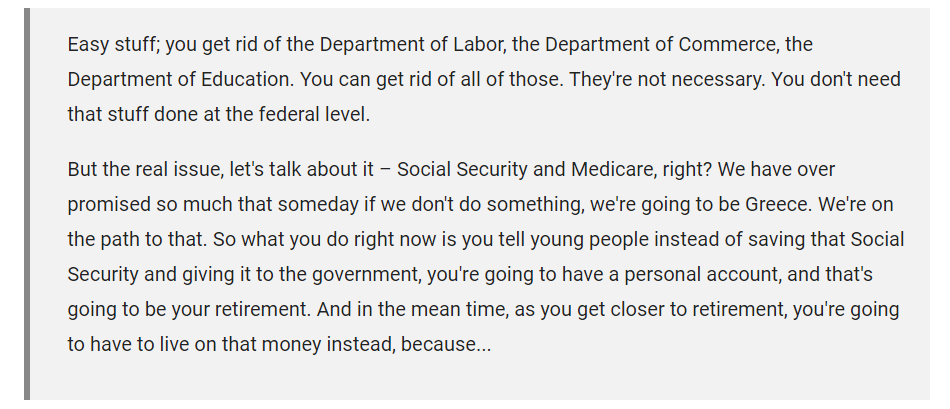
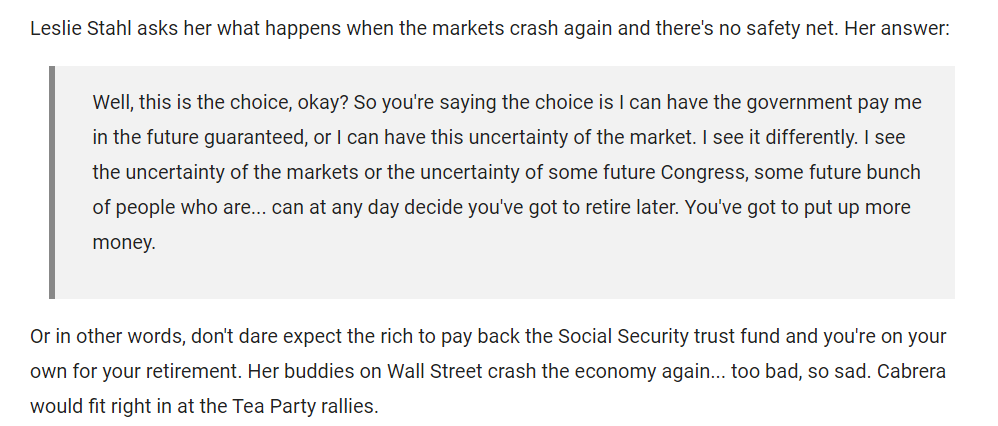
snip
https://books.google.se/books?id=DZRbKtm2FfUC&printsec=frontcover&dq=You+Know+I%27m+Right:+More+Prosperity,+Less+Government+secrecy++banking+secrecy+and+tax+havens+exist&hl=en&sa=X&ved=2ahUKEwie2NCE-ZfqAhVhxIsKHXHBAjgQ6AEwAXoECAEQAg#v=onepage&q&f=false
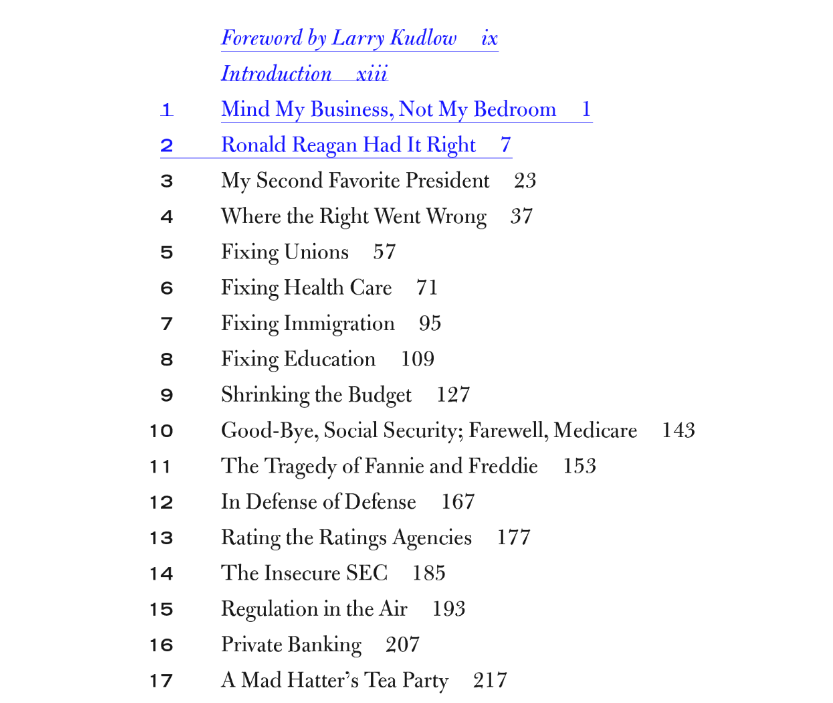
'Freedom and democracy are best secured when banking secrecy and tax havens exist'
Wall Street takes aim at Alexandria Ocasio-Cortez in party primary
https://www.ft.com/content/580b5830-7f7e-4092-a6f7-7b451e075e10
snip
Ms Caruso-Cabrera, 53, has raised just over $2m, a substantial figure for a challenger, as dozens of chief executives, investors, bankers and lawyers have given the maximum allowable donation of $2,800 each to her primary campaign. Some have given another $2,800 for the general election.
However, Ms Ocasio-Cortez has taken in even more: $10.5m, reflecting the ability of figures on the party’s leftwing — such as Bernie Sanders, her preferred presidential candidate — to attract hundreds of thousands of small donations from contributors nationwide. The median size of her donations is $10, according to an Financial Times analysis of Federal Election Commission filings and the online fundraising platform ActBlue.
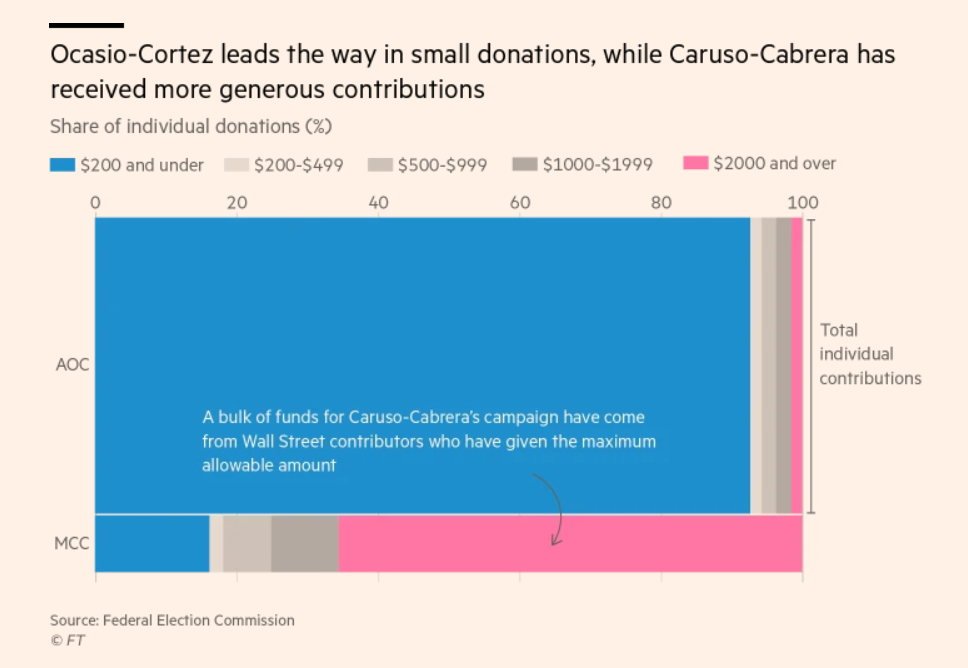
snip
AOC Attacked by Super PAC Funded by Primary Opponent's Husband
Mailers and digital media opposing Alexandria Ocasio-Cortez are being distributed by a super PAC that has received the majority of its funding from Stephen Dizard, the husband of her primary opponent, Michelle Caruso-Cabrera.https://readsludge.com/2020/06/17/aoc-attacked-by-super-pac-funded-by-primary-opponents-husband/
Congressional candidates and the PACs that donate to them can only legally take a few thousand dollars from individual donors. But PACs that tell the Federal Election Commission that they won’t donate to or coordinate with candidates are allowed to take unlimited amounts of money from donors. Since the contribution limits for outside spending groups were eliminated by a 2010 D.C. Circuit court ruling that came in the wake of the Supreme Court’s Citizens United decision, many PACs have tested the limits of how closely they can affiliate with candidates without being considered to be acting in coordination and, thus, no longer allowed to raise unlimited sums from donors. Now, the latest attempt to push the limits has emerged in the race between Rep. Alexandria Ocasio-Cortez (D-N.Y.) and her Democratic primary challenger, former CNBC correspondent Michelle Caruso-Cabrera.
An organization called Fight for Our Communities PAC reported its first expenditure to the FEC on Tuesday—$28,000 paid to a Pittsburgh video production company called Phenomenon Post for digital media and mailers opposing Ocasio-Cortez. The mailers and digital media were publicly distributed on Tuesday, according to the FEC filing. As of its most recent disclosure covering receipts made prior to April 30, Fight for Our Communities PAC is funded primarily by Caruso-Cabrera’s husband, Stephen Dizard, who donated $30,000 to it in April. Dizard’s donations make up more than 70% of the PAC’s total funding, according to FEC records, and it is more than ten times the amount he would be allowed to give to the Caruso-Cabrera campaign. Fight for Our Communities is required to file an updated donor disclosure on June 20.
snip
Dizard, a managing partner at financial firm Wood Capital, has donated primarily to Republicans. His largest donation prior to his donations to Fight for Our Communities PAC was to a joint fundraising committee in 2014 that benefited the campaigns of six congressional Republicans. Other Republicans he has donated to in recent years include Sen. Tom Cotton (R-Ark.), Sen. Cory Gardner (R-Co.), and Sen. Marco Rubio’s (R-Fla.) 2016 presidential campaign.
The campaign of Caruso-Cabrera, who authored a 2010 book calling for Social Security and Medicare to be replaced with privatized voucher systems, has been heavily backed by Wall Street donors. Her more than $2 million received from contributors include maximum donations from executives at firms including Blackstone, Oaktree Capital Management, Goldman Sachs, and The Carlyle Group. Caruso-Cabrera is also supported by the U.S. Chamber of Commerce, the powerful business association that generally backs Republicans. Several of Caruso-Cabrera’s donors are also big donors to President Trump, the New York Post recently reported.
snip
https://twitter.com/CatGioino/status/1271490179774234628
back when she was pushing her book, which she was still pushing up until 2018
CNBC's Caruso-Cabrera: Eliminate Departments Of Labor, Commerce, Education And Privatize Social Security
https://crooksandliars.com/heather/cnbcs-caruso-cabrera-eliminate-departments
CNBC anchor Michelle Caruso-Cabrera visited the set of Morning Joe to push her new book You Know I'm Right and apparently we've got another Ayn Rand fan working for CNBC. After saying that the auto companies should have been allowed to fail, presumably to get rid of those pesky over paid union workers, Mike Barnicle asks her if she thinks we're going to have to raise taxes to pay our deficit. Cabrera of course doesn't think we should raise taxes and says that instead we should cut spending. Leslie Stahl asks her where. She replies:


snip
https://books.google.se/books?id=DZRbKtm2FfUC&printsec=frontcover&dq=You+Know+I%27m+Right:+More+Prosperity,+Less+Government+secrecy++banking+secrecy+and+tax+havens+exist&hl=en&sa=X&ved=2ahUKEwie2NCE-ZfqAhVhxIsKHXHBAjgQ6AEwAXoECAEQAg#v=onepage&q&f=false

'Freedom and democracy are best secured when banking secrecy and tax havens exist'
Wall Street takes aim at Alexandria Ocasio-Cortez in party primary
https://www.ft.com/content/580b5830-7f7e-4092-a6f7-7b451e075e10
snip
Ms Caruso-Cabrera, 53, has raised just over $2m, a substantial figure for a challenger, as dozens of chief executives, investors, bankers and lawyers have given the maximum allowable donation of $2,800 each to her primary campaign. Some have given another $2,800 for the general election.
However, Ms Ocasio-Cortez has taken in even more: $10.5m, reflecting the ability of figures on the party’s leftwing — such as Bernie Sanders, her preferred presidential candidate — to attract hundreds of thousands of small donations from contributors nationwide. The median size of her donations is $10, according to an Financial Times analysis of Federal Election Commission filings and the online fundraising platform ActBlue.

While many of Ms Caruso-Cabrera’s supporters raise money for Democrats, several are prominent business backers of President Donald Trump including Ken Langone, the billionaire founder of retailer Home Depot, activist investor Nelson Peltz and John Catsimatidis, who founded the Gristedes grocery chain.
Larry Lindsey, a Republican economist who served in the George W Bush administration, said: “Michelle knows more about the world and how things work than probably a solid majority of Congress.” He said he had known the challenger for 15 years and wrote her campaign a cheque as soon as he learnt she was running. “She and I would consider ourselves pragmatic libertarians.”
Larry Lindsey, a Republican economist who served in the George W Bush administration, said: “Michelle knows more about the world and how things work than probably a solid majority of Congress.” He said he had known the challenger for 15 years and wrote her campaign a cheque as soon as he learnt she was running. “She and I would consider ourselves pragmatic libertarians.”
snip
June 23, 2020
Label:
Hard Hands ?– HAND 009T
Format:
Vinyl, 12", 33 ⅓ RPM, Single
Country:
UK
Released:
01 Nov 1993
Genre:
Electronic
Style:
Progressive House, Breakbeat


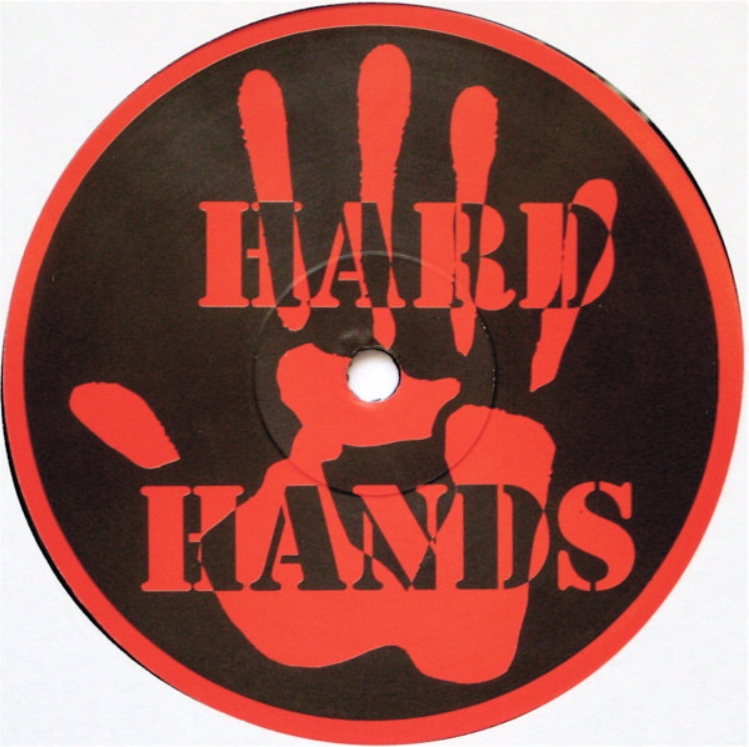

Leftfield + Lydon - Open Up (Dervish Overdrive)
Label:
Hard Hands ?– HAND 009T
Format:
Vinyl, 12", 33 ⅓ RPM, Single
Country:
UK
Released:
01 Nov 1993
Genre:
Electronic
Style:
Progressive House, Breakbeat




June 18, 2020
https://thebanter.substack.com/p/bolton-is-a-weasel-but-that-doesnt

WASHINGTON, DC -- Yeah, I get it. Former National Security Adviser John Bolton was too much of a cowardly weasel to appear as a witness in the impeachment proceedings. Bolton should have agreed to testify in defiance of Donald Trump, and he’ll have to live with himself knowing that he could’ve made a difference when it mattered to the investigation. We’re also going to have to reconcile this aspect of Bolton when we evaluate him, a notorious crackpot, as a political figure in the Trump White House as well as throughout the last 20 years or so. But none of that should diminish the impact of the allegations Bolton describes in his new book about his time working for Trump. The details are a separate matter that ought to keep us squarely focused on what Trump appears to be getting away with. The first major bombshell to emerge from Bolton’s book is that Trump’s quest to cheat in the 2020 election involved a hell of a lot more than extorting President Zelensky of Ukraine in order to launch a potentially damaging investigation into Joe Biden and his son, Hunter. It turns out, Trump also exploited his nonsensical, herky-jerky trade war with China as a way to get President Xi to help him win the election. According to the book, Trump was “pleading with Xi to ensure he’d win. He stressed the importance of farmers, and increased Chinese purchases of soybeans and wheat in the electoral outcome.”
Bolton also reports that Trump exploited U.S. probes of overseas crimes as a means of giving “personal favors to dictators he liked” in exchange for election help. In other words, Trump promised more than one dictator that he’d obstruct justice in order to get election help in exchange for the obstruction. The obvious question now is this: who didn’t Trump ask for help to cheat in the election? So far, we know about Russia, Ukraine, China and Turkey. We also know that Bill Barr’s probe into the origins of the FBI’s “Crossfire Hurricane” Russia investigation was authorized in order to smear Joe Biden, who was vice president during the Summer of 2016. Make no mistake, Trump has enlisted the Justice Department to help him smear Joe Biden and therefore help Trump with his re-election effort. Who else? Hopefully, other former Trump officials will follow Bolton’s lead and step forward to corroborate the allegations. I’m not holding my breath, but stranger things have happened. For a brief second, I considered the possibility that Trump was too ignorant to understand what he was doing, but that thought didn’t last very long. Trump knows when he’s cheating. He might not understand the legal ramifications, but he knows what it means to cheat, otherwise he wouldn’t be desperately suing to keep the book from being released -- a truly idiotic move since content from the book has started to flood the zone, and all Trump is doing is guaranteeing that book sales will be robust.
As I’ve said all along: Trump always makes things worse for Trump. Trump always thinks he’s helping himself, but he has a tendency to get caught. A lot. He gets caught in his lies, he gets caught cheating, he gets caught breaking the law and he often ostracizes the people around him, motivating leaks like the ones we’ve seen from Bolton’s book. He’s invariably the dumbest crook in the history of dumb crooks. My other Trump theory is that everything he does must be viewed through the prism of re-election. His malevolent response to the COVID-19 crisis was all about muscling the economy to stay afloat so he could use it in the campaign. Likewise, during talks with China, Trump pleaded “with Xi to ensure he’d win.” Bolton also observed that if the House of Representatives had expanded its inquiry beyond Ukraine, investigators would have discovered that many other “‘high crimes and misdemeanors’ had been perpetrated.” By the way, Bolton also noted that Trump thought Finland might be part of Russia, and he didn’t know that Britain was a nuclear power. Trump, Bolton also observed, came closer to withdrawing from NATO than was previously reported.
Given Trump’s blinding incompetence and aggressive criminality, no wonder he felt as though he needed to cheat in order to win. By now, Trump has to know that if he loses the election, and doesn’t figure out a way to pardon himself, he’ll very likely be indicted for a variety of crimes once he’s a private citizen again. At the same time, it’s clear to anyone who’s paying attention that Trump requires all kinds of help just keeping his presidency from completely melting down. It’s unprecedented the amount of resources required to keep him standing upright -- and even with all the president’s men, including all of Fox News Channel, holding the administration together with chewing gum and chicken wire, it’s still a wobbly wacky shack that could implode at any moment. The president won’t be impeached again. Not before the election. Likewise, as long as Bill Barr is attorney general, he won’t be indicted. And it’s doubtful Mike Pence will orchestrate some kind of 25th Amendment strategy to remove him that way. The only thing remaining is the November election and all of us. If Trump is re-elected, it will metastasize Trump’s horrendousness, rewarding it and franchising it as a successful political movement. The high crimes are obvious and unequivocal, and we can’t let the cheater win again.
snip
Bolton Is A Weasel, But That Doesn't Mean He's Lying
Bolton says Trump appeased multiple dictators to help him cheat in the election. The question is, who didn't he ask?https://thebanter.substack.com/p/bolton-is-a-weasel-but-that-doesnt

WASHINGTON, DC -- Yeah, I get it. Former National Security Adviser John Bolton was too much of a cowardly weasel to appear as a witness in the impeachment proceedings. Bolton should have agreed to testify in defiance of Donald Trump, and he’ll have to live with himself knowing that he could’ve made a difference when it mattered to the investigation. We’re also going to have to reconcile this aspect of Bolton when we evaluate him, a notorious crackpot, as a political figure in the Trump White House as well as throughout the last 20 years or so. But none of that should diminish the impact of the allegations Bolton describes in his new book about his time working for Trump. The details are a separate matter that ought to keep us squarely focused on what Trump appears to be getting away with. The first major bombshell to emerge from Bolton’s book is that Trump’s quest to cheat in the 2020 election involved a hell of a lot more than extorting President Zelensky of Ukraine in order to launch a potentially damaging investigation into Joe Biden and his son, Hunter. It turns out, Trump also exploited his nonsensical, herky-jerky trade war with China as a way to get President Xi to help him win the election. According to the book, Trump was “pleading with Xi to ensure he’d win. He stressed the importance of farmers, and increased Chinese purchases of soybeans and wheat in the electoral outcome.”
Bolton also reports that Trump exploited U.S. probes of overseas crimes as a means of giving “personal favors to dictators he liked” in exchange for election help. In other words, Trump promised more than one dictator that he’d obstruct justice in order to get election help in exchange for the obstruction. The obvious question now is this: who didn’t Trump ask for help to cheat in the election? So far, we know about Russia, Ukraine, China and Turkey. We also know that Bill Barr’s probe into the origins of the FBI’s “Crossfire Hurricane” Russia investigation was authorized in order to smear Joe Biden, who was vice president during the Summer of 2016. Make no mistake, Trump has enlisted the Justice Department to help him smear Joe Biden and therefore help Trump with his re-election effort. Who else? Hopefully, other former Trump officials will follow Bolton’s lead and step forward to corroborate the allegations. I’m not holding my breath, but stranger things have happened. For a brief second, I considered the possibility that Trump was too ignorant to understand what he was doing, but that thought didn’t last very long. Trump knows when he’s cheating. He might not understand the legal ramifications, but he knows what it means to cheat, otherwise he wouldn’t be desperately suing to keep the book from being released -- a truly idiotic move since content from the book has started to flood the zone, and all Trump is doing is guaranteeing that book sales will be robust.
As I’ve said all along: Trump always makes things worse for Trump. Trump always thinks he’s helping himself, but he has a tendency to get caught. A lot. He gets caught in his lies, he gets caught cheating, he gets caught breaking the law and he often ostracizes the people around him, motivating leaks like the ones we’ve seen from Bolton’s book. He’s invariably the dumbest crook in the history of dumb crooks. My other Trump theory is that everything he does must be viewed through the prism of re-election. His malevolent response to the COVID-19 crisis was all about muscling the economy to stay afloat so he could use it in the campaign. Likewise, during talks with China, Trump pleaded “with Xi to ensure he’d win.” Bolton also observed that if the House of Representatives had expanded its inquiry beyond Ukraine, investigators would have discovered that many other “‘high crimes and misdemeanors’ had been perpetrated.” By the way, Bolton also noted that Trump thought Finland might be part of Russia, and he didn’t know that Britain was a nuclear power. Trump, Bolton also observed, came closer to withdrawing from NATO than was previously reported.
Given Trump’s blinding incompetence and aggressive criminality, no wonder he felt as though he needed to cheat in order to win. By now, Trump has to know that if he loses the election, and doesn’t figure out a way to pardon himself, he’ll very likely be indicted for a variety of crimes once he’s a private citizen again. At the same time, it’s clear to anyone who’s paying attention that Trump requires all kinds of help just keeping his presidency from completely melting down. It’s unprecedented the amount of resources required to keep him standing upright -- and even with all the president’s men, including all of Fox News Channel, holding the administration together with chewing gum and chicken wire, it’s still a wobbly wacky shack that could implode at any moment. The president won’t be impeached again. Not before the election. Likewise, as long as Bill Barr is attorney general, he won’t be indicted. And it’s doubtful Mike Pence will orchestrate some kind of 25th Amendment strategy to remove him that way. The only thing remaining is the November election and all of us. If Trump is re-elected, it will metastasize Trump’s horrendousness, rewarding it and franchising it as a successful political movement. The high crimes are obvious and unequivocal, and we can’t let the cheater win again.
snip
June 18, 2020
Stand-up comedian Chris D’Elia has been accused of sexual harassment and misconduct, including soliciting nude photos from minors, by a growing list of women this week. His role as a comedian and pedophile in You’s second season in late 2019 has prompted a flurry of allegations from women that his character in the Netflix series mirrors his actual life almost exactly.
On June 16, a woman on Twitter named Simone Rossi began a thread by referencing D’Elia’s You role, tweeting, “I still can’t believe netflix cast chris d’elia as the pedophile in season to of ‘you’ like the literal IRONY.” Rossi followed it up with several rounds of email screenshots allegedly between her and the stand-up when she was 16 years old, which show D’Elia asking Rossi to meet up after his live shows as well as asking her for photos. “For the longest time i thought it was embarrassing for ME that i was interacting with this older man,” Rossi tweeted, “but he was the one who DM’d me on twitter and was the one who was twice my age and was the one that used the power imbalance between us to his advantage so f*ck chris d’elia.” In another tweet, Rossi alleged that D’Elia was aware that she was in high school while communicating with her, “considering my entire instagram was high school football games and spirit days.”
https://twitter.com/girlpowertbh/status/1273033463814254592
https://twitter.com/girlpowertbh/status/1273036495591485441
https://twitter.com/girlpowertbh/status/1273038118984261633
https://twitter.com/girlpowertbh/status/1273038219420950529
Rossi’s tweet prompted more women to speak out about their alleged encounters with D’Elia, in some cases while they were underage. “Although i’ve been publicly saying it for years, FUCK Chris D’elia. he solicited nudes off of me when i was 17 years old and constantly messaged me whenever he was touring vancouver and asked me to come backstage to his shows,” another woman, @michaelacoletta, tweeted. “I am so unsurprised that multiple girls are coming out with almost the exact story as mine. it’s a known fact he’s a fucking perv and he plays those roles perfectly when acting lmao.”
https://twitter.com/michaelacoletta/status/1273056121570291712
The allegations against D’Elia continued on the popular @SheRatesDogs Twitter account, which shared multiple screenshots of anonymous women sharing similar stories. One woman alleged that her interactions with D’Elia took place when she was 14 and in middle school, and another alleges that D’Elia used an 18-year-old woman’s nudes in an attempt to blackmail her.
https://twitter.com/gap2thed/status/1273044281565917184
https://twitter.com/SheRatesDogs/status/1273065506791014401
https://twitter.com/AGrillz/status/1273115882110226433
https://twitter.com/gap2thed/status/1273131020926287873
https://twitter.com/SheRatesDogs/status/1273067742589902849
https://twitter.com/SheRatesDogs/status/1273107106720354305
https://twitter.com/SheRatesDogs/status/1273101827752579074
snip
Chris D'Elia Accused of Soliciting Nude Photos From Underage Girls
https://www.vulture.com/2020/06/chris-delia-accusations-pedophile-sexual-harassment.htmlStand-up comedian Chris D’Elia has been accused of sexual harassment and misconduct, including soliciting nude photos from minors, by a growing list of women this week. His role as a comedian and pedophile in You’s second season in late 2019 has prompted a flurry of allegations from women that his character in the Netflix series mirrors his actual life almost exactly.
On June 16, a woman on Twitter named Simone Rossi began a thread by referencing D’Elia’s You role, tweeting, “I still can’t believe netflix cast chris d’elia as the pedophile in season to of ‘you’ like the literal IRONY.” Rossi followed it up with several rounds of email screenshots allegedly between her and the stand-up when she was 16 years old, which show D’Elia asking Rossi to meet up after his live shows as well as asking her for photos. “For the longest time i thought it was embarrassing for ME that i was interacting with this older man,” Rossi tweeted, “but he was the one who DM’d me on twitter and was the one who was twice my age and was the one that used the power imbalance between us to his advantage so f*ck chris d’elia.” In another tweet, Rossi alleged that D’Elia was aware that she was in high school while communicating with her, “considering my entire instagram was high school football games and spirit days.”
https://twitter.com/girlpowertbh/status/1273033463814254592
https://twitter.com/girlpowertbh/status/1273036495591485441
https://twitter.com/girlpowertbh/status/1273038118984261633
https://twitter.com/girlpowertbh/status/1273038219420950529
Rossi’s tweet prompted more women to speak out about their alleged encounters with D’Elia, in some cases while they were underage. “Although i’ve been publicly saying it for years, FUCK Chris D’elia. he solicited nudes off of me when i was 17 years old and constantly messaged me whenever he was touring vancouver and asked me to come backstage to his shows,” another woman, @michaelacoletta, tweeted. “I am so unsurprised that multiple girls are coming out with almost the exact story as mine. it’s a known fact he’s a fucking perv and he plays those roles perfectly when acting lmao.”
https://twitter.com/michaelacoletta/status/1273056121570291712
The allegations against D’Elia continued on the popular @SheRatesDogs Twitter account, which shared multiple screenshots of anonymous women sharing similar stories. One woman alleged that her interactions with D’Elia took place when she was 14 and in middle school, and another alleges that D’Elia used an 18-year-old woman’s nudes in an attempt to blackmail her.
https://twitter.com/gap2thed/status/1273044281565917184
https://twitter.com/SheRatesDogs/status/1273065506791014401
https://twitter.com/AGrillz/status/1273115882110226433
https://twitter.com/gap2thed/status/1273131020926287873
https://twitter.com/SheRatesDogs/status/1273067742589902849
https://twitter.com/SheRatesDogs/status/1273107106720354305
https://twitter.com/SheRatesDogs/status/1273101827752579074
snip
Profile Information
Gender: FemaleHometown: London
Home country: US/UK/Sweden
Current location: Stockholm, Sweden
Member since: Sun Jul 1, 2018, 07:25 PM
Number of posts: 43,364